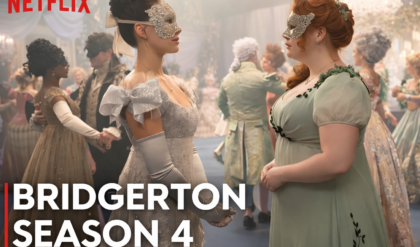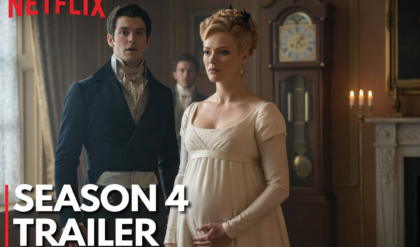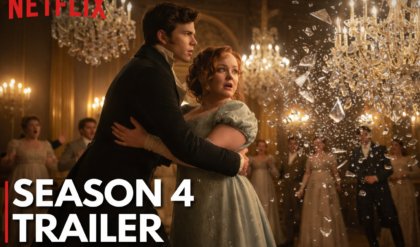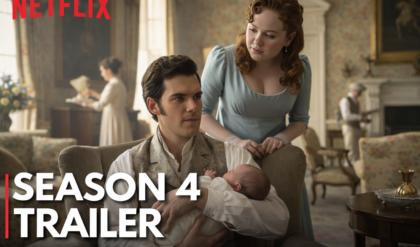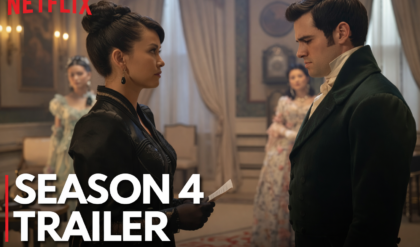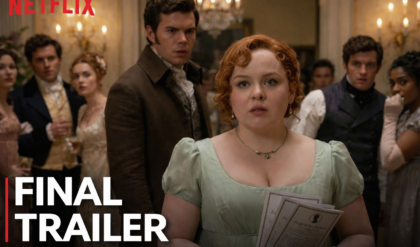Strangers turning up at your house, a vehicle vandalised, violent commentary online, eyes tracking you as you shop – the last episode of Adolescence chillingly shows the modern consequences of sudden public attention.
But the creators of the Netflix show – already seeming certain to sweep the prizes in next year’s TV awards – have, in an upsetting case of life imitating drama, experienced something of this attention (although without, we hope, the criminal elements).
Along with star Stephen Graham, Jack Thorne co-wrote this extraordinary four-parter about the impact on the Miller family of 13-year-old Jamie stabbing to death a classmate, apparently under the influence of misogynist “incel” rhetoric imbibed online.
Thorne reports a digital backlash, telling GQ: “I went on Channel 4 News, and I talked about what I’d seen, and where I’d been, and why we were telling this story, and the comment stream afterwards was all about how I looked. It was all about my oestrogen levels, and my testosterone levels, and who I was as a man.”
Others involved in Adolescence have spoken privately about their alarm at the level of comment and attention as they go about their lives in public. In Los Angeles and New York – creative cultures more experienced in the toxic possibilities of publicity – actors in hit shows or films have bodyguards and gated mansions. But the cast of Adolescence may plausibly be seen on a bus or in a shop; the younger performers have to go to school.
Such excessive receptions to drama are becoming more common. This intensity of attention has happened three times in the last 15 months: with Mr Bates vs the Post Office (shown on ITV in January 2024), Baby Reindeer (on Netflix last April) and now Adolescence (released by Netflix on 13 March this year).
In the case of the drama about the false prosecutions of post office operators for fraud, some cast members were relieved to be filming other shows abroad after it aired, as colleagues texted accounts of being mobbed by the public while shopping or travelling. While this attention was friendly and supportive of the drama’s whistleblowing on corporate cruelty, that distinction may not always be reassuring to those on the receiving end.

Richard Gadd’s TV adaptation of his solo stage show, Baby Reindeer, started a loud conversation because of media and social media attempts to identify the real-life models of a stalker and a rapist in the fictionalised story. This led to a man complaining to the police of false identification and a woman telling Piers Morgan on TV that the stalking storyline was based on her. Last year, a US judge threw out the woman’s claims against Netflix for punitive damages due to negligence but allowed a case for defamation to continue.
That Adolescence seems to represent a further rise in public scrutiny is unsurprising, given its subject matter of the violently sexist, digital radicalisation of young men. Whereas we cared about post office operators and were gripped by comedian Gadd’s distressing personal life, every parent, teacher and student is more intensely invested in the story of a pubescent child-killer.
When the Baby Reindeer controversy happened, the dramatist Russell T Davies suggested in an interview with the Times that such a crisis would not have occurred at the BBC, which would have been “much stricter” with editorial checks. While there is no proof that Netflix’s processes failed in regard to Gadd’s drama, Davies’s comment reflected a feeling in British TV that streamer shows can take advantage of being outside the regulatory system led by Ofcom.
However, perhaps the greater problem for the corporation is that the three recent drama hits – Adolescence, Baby Reindeer and Mr Bates – were all produced by other broadcasters. That may be one reason why its chief content officer, Charlotte Moore, recently announced that she is leaving the BBC to become an independent drama producer.
In the case of Adolescence, Netflix and the production company (Brad Pitt’s Plan B) had two separate duties of care. The first was during shooting, and applied especially to the 15-year-old Owen Cooper, who plays Jamie, to protect him while repeatedly rehearsing and performing traumatic material. By all available accounts, such support was impeccably dispensed on set.
The second obligation of producers, though, is post-transmission. And here there might be questions. Everyone in the media wants a piece of a hit, but I have been surprised by the level of publicity commitments carried out by Cooper – given his age and this being his first role – and Thorne, whose charmingly unguarded personality can make him vulnerable to gotcha interviewing. That, though, is not only a matter for Netflix and Plan B; the media should also think about who they interview and how, and the framing of the coverage.
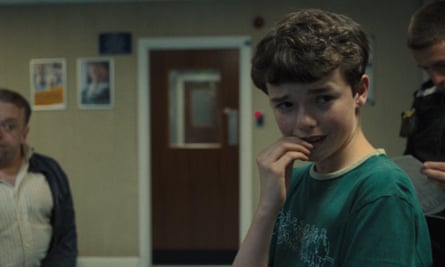
The biggest lesson, though, is that we tend to think of the arts as soft and safe, a haven from the heavy issues of news and tribalisms of sport. But because fiction often interrogates events and beliefs, culture is on the frontline of ideological tensions. Fiction is dangerous.
So Salman Rushdie is half-blinded and otherwise mutilated for his defence of free writing and speech. Audiences at last year’s open-air staging of Fiddler on the Roof in Regent’s Park walked though heightened security apparently deemed necessary for a Jewish show with Jewish actors. A theatre producer recently told me about having quietly dropped a planned production of a play about neo-Nazis because of security advice – that the theatre would not be safe for audiences and performers. And actors in a TV show must plead to be left alone.
From now on, producers will have to think hard about how to protect creative teams from the device and real-life attention that Adolescence, among other things, so brilliantly dramatised.
Especially with Netflix shows – which have a coordinated global drop that can make the vulnerability of those involved universal – recognisable creatives in standout series should probably go to a metaphorical or actual safe house when transmission begins. (Again, this is complicated with streamers by the period of weeks or months in which a show may be first seen.) If the subject matter is controversial, the producers should probably strongly recommend that those involved neither post on nor read social media, especially if young or vulnerable.
Great drama reflects society, but Adolescence has found a terrifying reflection staring back at it.
Netflix’s Adolescence, a four-episode British crime thriller that premiered on March 13, 2025, has redefined streaming success, pulling in 66.3 million views in its first two weeks and claiming the title of the UK’s most-watched streaming debut ever. With its innovative one-shot filming technique and a cast led by Stephen Graham, Owen Cooper, and Christine Tremarco, the series—co-created by Jack Thorne and Graham—delivers a brutal exploration of youth violence, online radicalization, and fractured families. Yet, behind its 98% Rotten Tomatoes score and cultural wildfire lies a darker story: the nightmare of making a hit show in an era of terrifying societal divides. From vicious online trolls to creative exhaustion, the backlash to Adolescence has exposed the toll of tackling raw truths in a polarized world. Here’s the full unraveling of this troubled triumph.
A Hit Born from Heartbreak
Adolescence centers on Jamie Miller (Owen Cooper), a 13-year-old boy accused of stabbing his classmate Katie Leonard, unfolding in real-time through the eyes of his parents Eddie (Graham) and Manda (Tremarco). Inspired by the UK’s knife crime crisis—nearly 18,500 offenses in 2023 per the Ministry of Justice—and the rise of incel culture, the show was a passion project for its creators. Graham told Netflix’s Tudum, “I read about young boys killing young girls, and it broke me. I wanted to understand why.” Thorne, meanwhile, aimed to spotlight the “logic” of online radicalization, drawing from cases like Elliot Rodger’s 2014 massacre and the Toronto van attack of 2018.
The result was a phenomenon: 6.45 million UK viewers for its premiere, global domination on Netflix’s charts, and praise from Prime Minister Keir Starmer, who called it a wake-up call on digital dangers. But as Adolescence soared, its makers faced a storm they never anticipated—a backlash that turned their labor of love into a waking nightmare.
The Trolls Strike Back
The first wave hit online. Within days of its release, X and other platforms erupted with vitriol. Conspiracy theorists accused the show of “race-swapping” Jamie’s character—despite no basis in the script—prompting Thorne to call the claims “absurd” on Channel 4 News on March 20, 2025. Others branded it a “woke” attack on masculinity, seizing on its portrayal of incel ideology and Andrew Tate’s cameo mention. “They’re demonizing young men!” one X post raged, garnering thousands of likes. Thorne, a bespectacled writer with a gentle demeanor, became a lightning rod, with trolls mocking his appearance—“Four-eyed woke idiot,” one wrote—rather than engaging with the show’s message.
Graham wasn’t spared either. Known for gritty roles in This Is England, he faced accusations of “selling out” to Netflix’s agenda, despite his personal stake as a father alarmed by his son’s exposure to Tate’s rhetoric. “It’s not about politics,” he told Rolling Stone UK. “It’s about kids dying.” Yet, the online mob didn’t care—Adolescence had touched a nerve in a culture war it never intended to fight.
The Creative Toll
The backlash wasn’t just external—it bled into the production itself. The one-shot format, a technical marvel helmed by director Philip Barantini, was grueling. Each 60-minute episode demanded precision, with no cuts to hide mistakes. Owen Cooper, the 15-year-old breakout star, described filming Episode 3—where Jamie’s psyche unravels—as “horrible,” telling Tudum, “You’re exhausted, but you can’t stop.” Graham, who likened Cooper to Robert De Niro, admitted the process was “relentless,” a sentiment echoed by Tremarco on Lorraine: “It’s like living it for real.”
Thorne, too, felt the strain. Writing a story this raw—drawing from real tragedies like Elianne Andam’s 2023 murder and the 2024 Southport stabbings—left scars. “I couldn’t sleep some nights,” he confessed to The Guardian on March 23, 2025. “You’re putting this kid’s pain out there, and then you’re attacked for it.” The team’s goal was noble—Thorne wanted it shown in schools, Graham sought to spark dialogue—but the personal cost was steep.
A Polarized Reception
Critics adored Adolescence, with The Independent calling it “a sledgehammer to the gut” and Variety praising its “unflinching honesty.” Yet, public reaction split sharply. Parents and educators hailed its relevance—posts on X like “Every teen needs to see this” went viral—while others decried its bleakness. “It’s trauma porn,” one user wrote, arguing it exploited real pain for views. The incel subplot drew particular ire; some felt it stereotyped lonely teens, others that it gave a platform to toxic ideas. “They mention Tate but don’t challenge him enough,” a viewer complained on Reddit.
This divide mirrored the show’s own themes: a society fractured by mistrust and miscommunication. Starmer’s endorsement—watching with his kids and pushing for online reforms—only deepened the rift, with detractors accusing Adolescence of pandering to political elites. “It’s propaganda dressed as drama,” an X post claimed, ignoring its roots in lived experience.
The Industry’s Shadow
Making a hit in 2025’s “terrifying times” meant navigating more than fan backlash. Netflix’s pressure to deliver—66.3 million views don’t come cheap—clashed with the creators’ vision. Rumors of Season 2 talks surfaced (Thorne’s “Jamie’s story is finished” on This Morning dashed them), but insiders told Deadline on March 24, 2025, that the streamer pushed for more despite the team’s exhaustion. “They wanted a franchise,” a source said. “Jack and Stephen wanted art.” The tension reflects a broader industry struggle: art versus commerce in an age of endless content.
The cast felt it too. Ashley Walters, as DI Luke Bascombe, stayed silent amid the storm, while Cooper—thrust from obscurity to fame—faced paparazzi hounding him in Liverpool. “It’s been mad,” he told Netflix, a teen caught in a machine bigger than he’d imagined.
A Nightmare Worth Living?
Was it worth it? For Thorne, the answer’s complex. “I’d do it again, but I’d brace myself better,” he told the BBC. Graham, ever the optimist, saw value in the chaos: “If it saves one kid, one family, it’s enough.” The show’s impact is undeniable—schools are discussing it, Parliament’s debating online safety, and its 42 million Week 2 views prove its reach. Yet, the nightmare lingers. Trolls still lurk, the team’s still healing, and the question of a Season 2 looms like a specter—desired by fans, dreaded by its makers.
The Bigger Picture
Adolescence isn’t just a TV show—it’s a microcosm of 2025’s terrors: knife crime spiking, teens lost to algorithms, and a culture too quick to vilify or canonize. Its backlash mirrors its story: a boy misunderstood, a family torn apart, a society at odds. Making it was a nightmare not because it failed, but because it succeeded too well—holding a mirror to truths too ugly to face.
As of March 26, 2025, all episodes stream on Netflix, a testament to its power and a scar of its cost. The creators survived their ordeal, but the wounds remain—a haunting reminder that in terrifying times, even art comes with a fight. Whether Adolescence returns or rests, its legacy is sealed: a hit born from pain, battered by backlash, and impossible to ignore.
